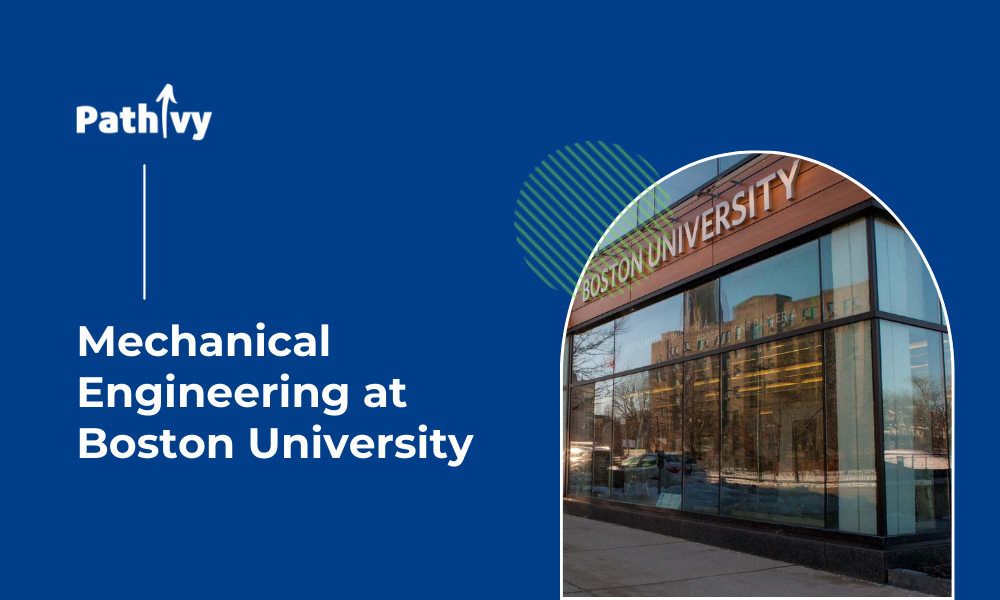My Application Process
My name is Jacqueline and my major at Boston University is Mechanical Engineering. I applied to schools for admission in Fall 2019 with a 1550 SAT score and a 3.72 GPA.
I applied to several schools, selecting Aerospace Engineering or Mechanical Engineering if that school did not have a specific Aerospace program. Some other schools I applied to include:
- Duke
- MIT
- Northwestern
- Tufts
- University of Michigan
- Cornell
- Case Western Reserve
- RIT
- Harvey Mudd
- Stanford
Most of my admissions decisions were rejections, which I expected as I applied to many prestigious and selective schools. Some highlights of my admissions process were:
- I was accepted to BU and the Kilachand Honors College as a Mechanical Engineering student and received a full academic scholarship
- I was accepted to RIT as a Mechanical Engineering student and received a presidential scholarship.
- I was waitlisted at Cornell
- I was waitlisted at the University of Michigan
I ultimately chose not to attend RIT because after looking at the staff and technologies available to Engineering students, I realized that the school was more focused on design rather than the fundamentals of Engineering which I thought were important. I also received a larger scholarship from BU and was admitted into the honors college so I thought it was a better option to pursue. Additionally, the urban setting of BU appealed more to me but this is a personal preferences.
Mechanical Engineering at Boston University
BU is a 4 year private university with over 16,000 undergraduate students. It is an urban school located in the heart of Boston that offers many majors and resources. The Mechanical Engineering major at BU covers the fundamentals of mechanical systems and allows students to specialize in energy, aircraft, manufacturing and a few other more niche fields. There are a lot of resources available to students including a full machine shop, a student invention lab, an entrepreneurship lab, an electronics lab, cell biology labs, and countless reading materials and software available. Many of the professors teaching in the department had previously worked in the industry and are experts in their fields.

Requirements
135 Credits
Required Courses for the College of Engineering
- Introduction to Programming
- Introduction to Engineering
- Computational Linear Algebra
- Introduction to Engineering Design
- Engineering Mechanics I
- Electric Circuits
- Probability Statistics and Data Science
Required Courses for Mechanical Engineering Major
- Manufacturing Processes
- Introduction to CAD and Machine Components
- Fluid Mechanics
- Engineering and Thermodynamics
- Mechanics of Materials
- Product Design
- Engineering Mechanics II
- Introduction to Materials Science
- Heat Transfer
- Instrumentation and Theory of Experiments
Additionally, 4 Advanced Electives and 2 semesters of senior design are required. These electives can be major related like Mechanical Vibration and Aircraft Performance and Design. They can also be advanced courses in other areas of the college such as Electrical or Biomedical Engineering classes.
In addition to the major and college requirements, Boston University requires that several categories of general education requirements (HUB) be met by a student’s coursework. While some courses in the major curriculum fulfill HUB requirements, non-major electives need to be taken to fulfill the following criteria such as:
- Philosophical Inquiry and Life’s Meanings
- Aesthetic Exploration
- Historical Consciousness
- Scientific and Social Inquiry (3 units)
- Quantitative Reasoning (Levels 1 and 2)
- Individual in Community
- Global Citizenship and Intercultural Literacy (2 units)
- Ethical Reasoning
- Teamwork/Collaboration (2 units)
- Research and Information Literacy (2 units)
- Critical Thinking (2 units)
When selecting elective courses, the HUB units fulfilled by the course will be listed in the course catalog. Each class can meet 1-3 units of HUB requirements. This can greatly restrict elective options for Engineering students who already have a high number of required major courses. Rather than choosing courses they are interested in, students should try to fulfill as many HUB courses as possible with their electives in order to graduate on time.

Personal Experience
I knew that I wanted to work in the Aerospace industry so I focused on schools which offered Aerospace or Mechanical engineering majors. While BU does not have a specific Aerospace program, I researched the resources at the school and found that there was a concentration and a lot of programming focused around the aerospace field. I have taken many courses related to my interests and will take more classes including Spacecraft Dynamics and Aircraft Propulsion which will prepare me for my field. I have had an overall positive experience with the major and the resources available to me; the only thing to note is that there is not usually much time for other interests as non-major electives are generally restricted by BU’s HUB requirements. This means that I sometimes have only 1 or 2 courses to pick from given my schedule and requirements.
Clubs and Activities
One activity I participated in related to my major was the BU Rocket Propulsion Group which is a team of students dedicated to designing a sounding rocket. The team is split into groups focused on different aspects such as part design, flight paths, and engine fabrication. This is a good opportunity to practice fundamentals on a real project. I am also involved in research at the Space Physics Technology Lab at BU where I work in satellite projects. I design flight paths and work on user interfaces for those involved in the project.

Major in Review
This major is increasingly important in a world which needs designers and Engineers for projects involving mechanical systems. This spans from aircraft and space based devices to heating systems and includes fields like structural design and materials science. Many of my peers are also choosing to pursue environmental and sustainability engineering which is an essential aspect of the global fight to combat climate change and to power the world economy with more sustainable energy sources. Students at BU have interned and worked at GE, SpaceX, Lockheed Martin, Raytheon, and many more exciting companies at a variety of positions. BU’s engineering career fair makes it easy for students to have access to representatives from these companies for internships and jobs and most of my peers have been able to find positions with comfortable salaries and are able to work on meaningful projects
Written by Jacqueline Bachrach, PathIvy Boston University Ambassador
.png?width=175&height=73&name=ORIGINAL%20LOGO%20Blue%20and%20Green%20(1).png)
.png?width=50&name=author-image%20(2).png)

